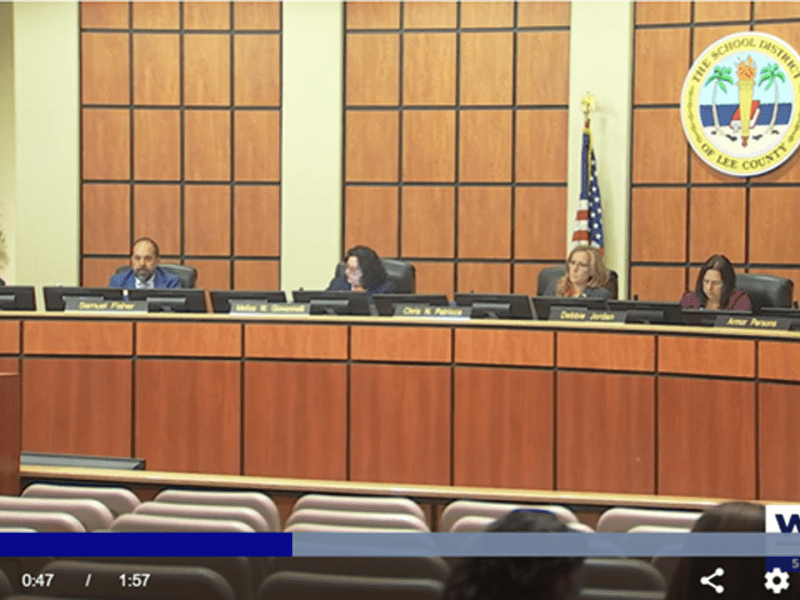New critical race theory laws have teachers scared, confused and self-censoring
The Washington Post | By Laura Meckler and Hannah Natanson | February 14, 2022
A Utah student group was called “Black and Proud.” The principal had it renamed. A New Hampshire history teacher used to discuss current events in a unit about race and economics. No more. And Florida school officials canceled a lecture for teachers on the history of the civil rights movement while they considered whether it would violate state rules.
In 13 states, new laws or directives govern how race can be taught in schools, in some cases creating reporting systems for complaints. The result, teachers and principals say, is a climate of fear around how to comply with rules they often do not understand.
The new measures typically bar teachers from suggesting the United States is a racist country, from elevating one race or gender over another or implying that one race is superior. So far, they have not triggered wholesale rewrites of the curriculum, and few educators have faced prosecution or punishment. Some teachers say they see no changes at all.
But manyteachers nonetheless describe a chilling effect. They say they now err on the side of caution for fear that a student or parent might complain, resulting in a public battle — or even, in extreme cases, that they might lose their jobs. In New Hampshire and Oklahoma, which allow anyone unhappy with a teacher to complain to the state, there is an extra layer of fear. Teachers found to be out of compliance can lose their teaching licenses.
“The law is really, really vague,” said Jen Given, a 10th grade history teacher at Hollis Brookline High School in Hollis, N.H. The New Hampshire law bars teaching that people of one age, sex, gender identity, sexual orientation, race, creed, color, marital status, familial status, mental or physical disability, religion, or national origin are inherently superior or inferior to people of another. But Given said she’s not clear on the definition of “inherently,” “superior” or “inferior.”
“We asked for clarification from the state, from the union, from school lawyers. The universal response is no one’s really sure,” she said. “It led us to be exceptionally cautious because we don’t want to risk our livelihoods when we’re not sure what the rules are.”’
Supporters say the laws are needed to pare back offensive lessons about race in America, including the notion that White people today — even children — bear responsibility for sins of the past, and those that emphasize American racism over more unifying and uplifting elements of U.S. history.
Some officials have made it clear they are on the lookout for transgressions. In a speech last year, Richard Corcoran, the Florida education commissioner, said it was important to “police” teachers to make sure they are not indoctrinating students with a liberal agenda.
“I’ve censored or fired or terminated numerous teachers,” he said. “There was an entire classroom memorialized to Black Lives Matter and we made sure she was terminated.”
Opponents say teachers need the freedom to teach all of American history — the good and the bad — and that conversations about the unequal effects of slavery, systemic racism and White privilege are an important tool for helping students to analyze current events and controversies.
In recent years, many school districts have worked to examine structural racism in their systems — conducting “equity audits” and looking at discipline and achievement data through the lens of race. Many have added curriculums, books and lessons about racism and White privilege. In many places, these efforts accelerated following the murder of George Floyd in May 2020.
The backlash followed. A study published by UCLA’s Institute for Democracy, Education and Access surveyed 275 teachers who belong to organizations that address equity and tolerance and found the majority reported efforts to block teaching on issues of race. Some teachers also said their districts were pulling away from previously announced equity efforts.
Laws limiting the teaching of race, gender and related questions now exist in Arkansas, Idaho, Iowa, New Hampshire, North Dakota, Oklahoma, South Carolina, Tennessee and Texas. Executive actions, such as rules approved by a state board of education, are in place in Alabama, Florida, Utah and Virginia. In Georgia, the state board of education approved a resolution along these lines, but it was never codified into rules. In Montana, the attorney general issued an opinion on the issue. In Arizona, a law that imposed limits on teaching race was invalidated by the state supreme court.
Outside pressure is likely to persist.At least 27 states are considering legislation this year that would limit how race and, in some cases gender, can be taught in schools. Republicans see this issue as a winning one and are campaigning across the country against a basket of race-related policies they label as critical race theory.
Rewriting the lesson plan
Interviews with teachers and principals across the country reveal that educators are changing the way they teach about race in response to the new laws, sometimes in subtle ways.
In New Hampshire, Given said she used to teach students about racial disparities in economics partly by tying relative lack of Black wealth to Jim Crow laws and discriminatory mortgage policies known as redlining. Not anymore.
“We started avoiding modern parallels in order to avoid any question coming up that we were, by including this information, we were somehow suggesting one group is better than the other,” she said.
An hour north, in Hopkinton, N.H., high school English teacher Kate LaClair said she used to talk about the idea of privilege, including White privilege, during a unit on race. This year she plans to avoid any mention of that. She also is not going to have her students take the implicit bias test from Harvard or read articles critiquing it, as she has in the past.
“I’m just being more aware of buzz and trigger words,” she said.
In August, about a month after Oklahoma’s new law passed, administrators in Edmond, Okla., sent a slide presentation to staff saying that teachers should avoid using the terms “diversity” and “White privilege” during classroom discussions, according to a screenshot obtained by The Washington Post. Regan Killackey, who teaches English at Edmond Memorial High School, was so disturbed that he contacted the ACLU in Oklahoma and is now a plaintiff in a suit challenging the law.
“I was watching what was happening around me and ethically I couldn’t remain silent,” said Killackey, who is White and has taught for 18 years. This year, he said, “I have taught differently. I’ve had to edit myself in a way that I’ve never had to think about in my entire career.”
Edmond Public Schools spokeswoman Susan Parks-Schlepp said in an emailed statement that the slide presentation was “preliminary in nature.” The district later added “new slides [that] clarified for teachers that diversity could be discussed in the classroom,” she said.
And at Utah’s West Jordan Middle School, outside Salt Lake City, Principal D. Rae Garrison decided not to offer a popular course called American Institutions this year partly because one unit discusses current events, including the Black Lives Matter movement. She said the teacher did not feel comfortable teaching the class until they are certain that the material does not violate the new law.
They’ve made some changes and plan to offer the course again in the fall, she said, but she leaves open the possibility that she’ll again pull the course or modify it further.
“If we’re going to have people having an issue it would be with this class,” she said. While the teacher awaits guidance from the state, no decision has been made yet about whether to keep the Black Lives Matter material.
The Pulitzer Center, which distributes a curriculum based on the “1619 Project,” said one of the 42 participating school districts dropped out of a training program due to state legislation. Donnalie Jamnah, manager of K12 Partnerships, said “quite a few” teams “had to respond to some pushback to the work, (but) most were able to address those parent or community concerns.” She said a better test may come with the second cohort of teachers later this year.
Targeting books
In other challenges, parents have sought to remove books from reading lists, or teachers have done it preemptively.
A complaint under the new Tennessee law has been filed against the “Civil Rights Heroes” module of a second-grade reading curriculum — specifically four books detailing the life stories of Martin Luther King, Jr., Ruby Bridges and Sylvia Mendez. It charged that the books betray a “narrow and slanted obsession on historical mistakes … that makes children hate their country, each other, and/or themselves.”
The complaint came from the Williamson County chapter of Moms for Liberty, a national advocacy group that pushes for greater parental control over education.
The chair of the group, Robin Steenman, said in an email that her Moms for Liberty chapter is “genuinely concerned about the graphic, violent and racially divisive contents in the curriculum,” saying this content is not appropriate for second grade. She said she and other chapter members first grew concerned when a mother charged that her biracial child was “negatively impacted by the teaching.”
A spokeswoman for the Williamson County school district said this week that the district is reviewing challenges to 30 texts, including these titles.
In Oklahoma, the Edmond district eliminated a rule that teachers of an American literature course include at least one text authored by a woman or a person of color that meaningfully interrogates issues of race and identity, Killackey said. In a statement, Edmond schools spokeswoman Parks-Schlepp said the district reviews and updates its book lists annually to make sure they comply with state academic standards.
Last year, in Hopkinton, a teacher had students read an excerpt of the book “Stamped: Racism, Antiracism and You,” causing a stir. The controversy triggered a review, which is still ongoing, so the book is not currently being taught, said LaClair, who heads the English department at Hopkinton Middle/High School.
In Florida, rules approved by the state board of education that are otherwise open to interpretation include one clear directive: Schools may not teach the “1619 Project,” a set of essays and a book developed by the New York Times that argues slavery was central to America’s founding.
Pinellas County history teacher Brandt Robinson, who had spoken at a school board meeting about these issues, was accused by a parent of violating the law because his syllabus included a book about Black Americans that referenced the year 1619. The parent lost her appeal.
“Here is a woman who didn’t know what she didn’t know,” Robinson said.
Changes large and small
Administrators have felt the need to make a raft of other adjustments to accommodate the new rules.
In Osceola County, Fla., the school district had scheduled a January professional development session for teachers with Michael Butler, a history professor at Flagler College in St. Augustine, on the history of civil rights. Officials canceled it in part because they worried it would run afoul of the state’s rules.
“The district needed time to review the training materials in light of the current conversations across our state and in our community about critical race theory,” said district spokeswoman Dana Schafer. The teachers involved were instead moved into a training session with a different presenter.
This was also a concern in Edmond. Killackey said at the start of the school year, he learned administrators had nixed a module on anti-racist teaching from mandatory professional development training. The program had included holding “courageous conversations” about thorny social topics, including racial issues.
Parks-Schlepp said the district “has not changed its professional development training because of the law.” She noted that the module, though now voluntary, “still exists on our educator dashboard and is available for any teacher who wants to view it.”
Other modifications have been mostly symbolic, though some find the symbolism can be meaningful. In Davenport, Iowa, in 2020, school librarian Linda Smithson decorated windows with decal sayings including “Black Lives Matter,” “Science is Real,” “Love is Love” and “Women’s Rights are Human Rights.”
Smithson recalled just one complaint, from a student who asked, “Don’t all lives matter?,” prompting a conversation. Last summer, she said her principal asked her to take the decals down, citing the new law. “He didn’t want to offend anybody, and he didn’t want to wind up on the news,” she said. She complained, and in a meeting with a district official, she was again told to take them down because they were “political,” she said.
“Which ones are political?” she replied. She stuck to her position and was allowed to keep the decals but, in a concession, replaced a large Black Lives Matter flag in her library with a smaller one. A district spokesman had no comment.
At her Utah middle school, Garrison instructed a student group to change its name from “Black and Proud” to “Black Student Alliance.” Two years ago, she said, a father got “right up in my face” and demanded, “How dare you have a ‘Black and Proud’ group at our school. Can my son start a group called ‘White and Proud?’”
Garrison ignored the complaint — until the law passed last year, and she decided she should change the name just in case. She added that she likes the new name and finds it to be a positive change.
Nonetheless, she said: “I’m looking at things from a fear-based lens. … There’s a general distrust that’s been going on between parents and schools.”
In the fall, a parent at Kearsarge Regional Middle School in Sutton, N.H., complained that an educator was displaying a rainbow flag symbolizing LBGTQ+, said Steve Patterson, the school principal.
“A parent challenged me and said, ‘That’s against the law,’” Patterson said. “He made the case that the flag was at the front of the room more prominently than the U.S. flag, which it wasn’t.”
Patterson consulted with a district attorney who told him the flag was fine. “A pride flag is actually a message of inclusion,” Patterson said. “It doesn’t say any group is inherently inferior or superior.”
A climate of fear
Overall, Patterson sees teachers showing more caution. He worries, for instance, about an upcoming unit teaching the Holocaust. Might someone conclude that teaching this history sends a message that people of German descent are guilty by association? He doesn’t anticipate teachers losing their teaching licenses, but he doesn’t think that is the point.
“Are they changing the nature of the conversations in school? Yeah,” he said.
Liz Close, who teaches ethnic studies at Anderson High School in Austin has detected a low hum of anxiety all year. Close, 35, teaches about institutionalized racism in America and how some of the worst parts of our nation’s history inform the present. “I know that if I get a parent who does not agree with these concepts, I’ll be in trouble,” she said.
So far this year, though, no parents have submitted complaints. Close, who is White, has not changed much, but she did remove a link to the 1619 Project. “I still tell them about it. I say it’s a resource, you can read it — but I’m not putting it on my curriculum page,” she said.
Elsewhere in Texas — in Brownsville, on the Mexico border — Scott Frank began the year by offering his fellow teachers a primer on what the new law meant for them. The law bars them from “race or sex stereotyping” and forbids schools from requiring teachers to teach about current, controversial issues. He closed by encouraging them to read the language of the law themselves.
A couple teachers approached Frank afterward to ask if they could teach specific concepts or issues. Feeling out of his depth, Frank replied, “If it’s not stated specifically that you can’t teach it, then yeah, if it’s relevant to your course, you can teach it.”
“There is a nervousness in the air,” Frank said. “It’s just a feeling like, don’t rock the boat. Are you willing to lose your job over this kind of thing?”
At the start of the year, administrators at Valanna White’s high school in Cleveland, Tenn., convened a special meeting to discuss how the law might affect teaching, said White, 39. Their advice boiled down to: “Don’t teach your opinions, and if you think you can get in trouble for it, don’t do it,” she said.
White, who said she is the only African American teachers in the majority-White Walker Valley High School, said she never taught opinions but is now careful to delineate the source of everything.
“It is, ‘This is information that I gained from C-SPAN. This is information that you can look at at this website,’” White said.
She hesitates to answer questions about slavery and the Jim Crow era in America: “Miss White, what do you think about why people would treat each other that way?” “How would you handle it if you were enslaved?” “How would you handle it if you lived under Jim Crow?”
If she is asked about critical race theory, she now replies, “I don’t have a thought on that.”
Before the law passed, White said, she would try to draw her students out, pressing them to consider the causes of racism and urging them to inspect and understand their own feelings about the darkest parts of American history. She would have made clear all student opinions are valid and emphasized the need to think critically and empathetically about history.
“Now, I shy away,” she said. “I say: ‘We can’t talk about that.’ Or: ‘We shouldn’t.’”






